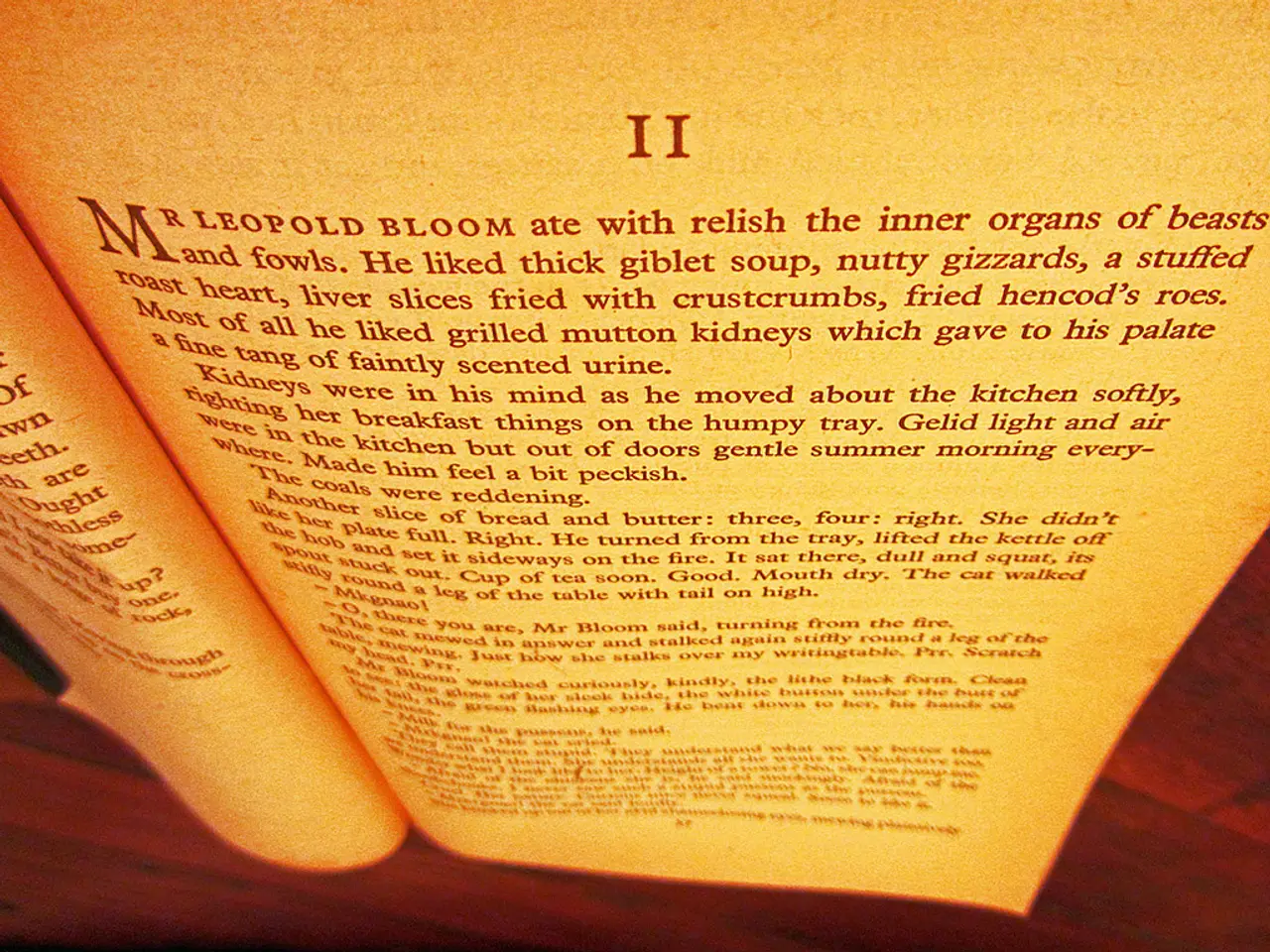Life Principles from Stoicism: Heed These Rules to Boost Your Importance (Stoicism Philosophy)
In the bustling world of business, it's not uncommon to find oneself overwhelmed by the daily grind. But for Mark, a 42-year-old manager, the path to greater fulfillment lies in the ancient teachings of Stoicism.
Stoicism, a philosophy originating from ancient Greece, offers a practical framework for building resilience, living intentionally, and managing the emotional challenges of an unpredictable world. Drawing from classic Stoic teachings, especially those of Marcus Aurelius, Epictetus, and Seneca, as well as contemporary interpretations, Mark has adopted ten core Stoic rules to guide his life.
**The Top 10 Stoic Rules**
1. Focus on what you can control: By accepting that much of life is beyond our control, we can direct our energy towards our own thoughts, decisions, and actions, reducing frustration and building resilience.
2. Examine your impressions: Critically assess your initial emotional reactions to events. Don't accept them as truth without reflection—question whether they align with reason and virtue before responding.
3. Cultivate daily discipline: Build habits of self-mastery through consistent practice. Return daily to your principles, "tending your garden" with quiet persistence, not rigidity.
4. Live according to virtue: Let your values—not external rewards—guide your choices. Prioritise wisdom, courage, justice, and temperance in every action.
5. Align goals with natural reason: Evaluate your aims by asking what role they play in the larger universe. Seek goals that contribute to the common good and reflect your true nature as a rational being.
6. Hold your dignity in adversity: When disrespected or slandered, maintain your composure and integrity. Your worth is defined by how you act, not by others’ opinions.
7. Practice detachment from outcomes: Invest effort, not emotion, in results. Accept that some endeavours will fail, but the value lies in acting virtuously regardless of the outcome.
8. Embrace obstacles as opportunities: View challenges as chances to practice virtue, strengthen character, and grow. The obstacle is the way.
9. Refine your reactions: Treat emotional responses as skills to be honed. Strive for calm, deliberate reactions, even when provoked, to avoid being ruled by passions.
10. Maintain an objective perspective: Regularly step back to see the bigger picture. Consider the transience of events and the interconnectedness of all things to maintain clarity and equanimity.
**The Power of Stoicism**
These rules help Mark manage emotional reactions, align goals, and cultivate objectivity. By examining impressions and focusing on internal control, Stoics reduce the power of external events to disturb their peace. Practicing daily discipline and refining reactions help transform emotional volatility into steady, reasoned responses.
The Stoic does not chase arbitrary or externally imposed goals, but seeks to live “in accordance with nature”—meaning in harmony with reason and the broader good. By evaluating goals in the context of the whole, Stoics ensure their pursuits are meaningful, sustainable, and ethically grounded. This alignment fosters a sense of purpose and direction, even amid life’s uncertainties.
Stoics train themselves to view life’s events dispassionately, recognising the fleeting nature of both fortune and misfortune. This “view from above” helps maintain balance and prevents over-identification with any single outcome. By continually returning to principles and examining the larger context, the Stoic develops a resilient, objective mindset capable of weathering life’s unpredictability.
**A Life of Balance**
For Mark, the adoption of Stoic philosophy has been transformative. Regular reflection on impermanence and death's inevitability puts daily issues in perspective and motivates striving for self-mastery with urgent intentionality. He aligns personal goals like career growth and family relationships to principles of wisdom, justice, and moderation for intrinsic direction.
The ultimate goal is sustaining equilibrium, whether encountering fortunes or misfortunes, by the stability of Mark's character. By strengthening his character, applying such Stoic techniques has helped Mark gain inner resilience to life’s turbulent moments while focusing energy on virtuous priorities within his influence.
Mark prepares for setbacks by tempering attachments to specific outcomes. Practicing self-denial like fasting, cold showers, and strenuous exercise builds Mark's self-discipline to endure work pressures. He focuses on controllable factors like his responses instead of uncontrollable external events such as company layoffs, the economy, aging parents' health issues, or stock market volatility.
In a world that often seems out of control, Mark's journey serves as a testament to the power of Stoicism in cultivating resilience, inner peace, and a reasoned perspective on life.
- Mark is utilizing Stoicism, a philosophy of self-development and education, to cultivate personal growth by adopting ten core rules that help manage emotional reactions, align goals, and maintain an objective perspective.
- As Mark practices the top 10 Stoic rules, such as focusing on internal control, examining impressions, and cultivating daily discipline, he is able to reduce the power of external events over his peace, transform his emotional volatility, and foster a sense of purpose and direction in his life.




